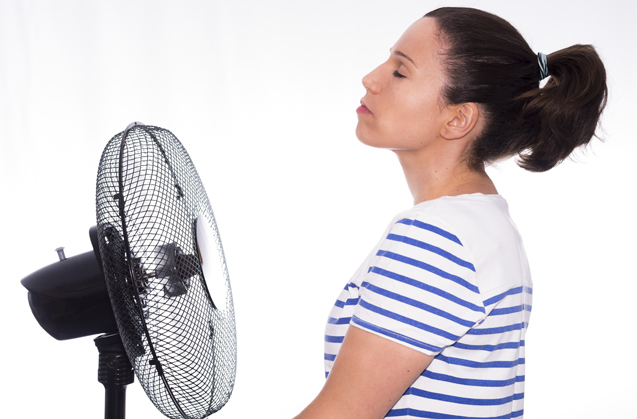Struggling with Hot Flushes?
The menopause transitional phase or perimenopause years usually start when a woman is in her 40’s, but with some women it can start as early as the age of 30.
At this time of a woman’s life, the body goes through a lot of changes. This is due to hormonal changes, which can cause physical and emotional challenges to the body . The first thing many women notice is a change in their periods; they may experience irregular, heavy or scanty periods. A woman reaches menopause when she has had no period for 12 months in a row.
Hot flushes are a common menopausal symptom. However other symptoms such as breast tenderness, low sex drive, fatigue, irritability and depression can also be experienced and can last between four to ten years in some cases.
Not all woman have symptoms and scientists are still working out why some struggle and others have very little symptoms at all.
Nutrition
A healthy balanced diet should be varied and rich in nutrients, it should be regular, as irregular eating can cause tiredness and make symptoms such as hot flushes and irritability worse. It is also very important to cut down on coffee, alcohol and sugars in your diet. Make sure that your diet is rich in green leafy vegetables and take a good quality of multivitamins.
Relaxation
Practice relaxation technique such as tai chi and yoga, studies has shown that supported and restorative yoga poses can reduce stress and also help strengthen the bones.
Exercise
If going to the gym is not your thing consider dancing classes, brisk walk, or cycling. Find something you enjoy, regular exercise helps maintain a healthy weight, speed up your metabolism and reduce loss of muscle mass, which are all associated with symptoms of menopause. Exercise also reduces stress and can enhance overall quality of your life.
Hormone Treatment
HRT (Hormone Replacement Treatment) or hormone therapy is the usual standard treatment for menopausal symptoms. You must speak to your GP to remind you of any risks that might be associated with hormone replacement treatment.
Your doctor may also prescribe antidepressants for symptoms such as mood swings or irritability that might be associated with hormonal imbalances.
Acupuncture
Traditional Chinese Acupuncture is a holistic treatment that has stood the test of time. Evidence based clinical research has shown that traditional acupuncture can safely treat a wide range of common illness. Each woman is an individual and therefore experience menopause differently. Traditional acupuncture treatment is individually tailored; it focuses on the whole person and aims to improve a woman’s entire health and wellbeing.
Acupuncture can help with hot flushes, night sweats, anxiety and insomnia. Patients seen in clinic frequently say that they feel the benefit of acupuncture beyond their main complaint.
Remember it is your body, choose a treatment that best suits you and always speak to your GP if you are struggling with any of the above symptoms.
Call 0208 661 1613 for further information or to book an appointment



